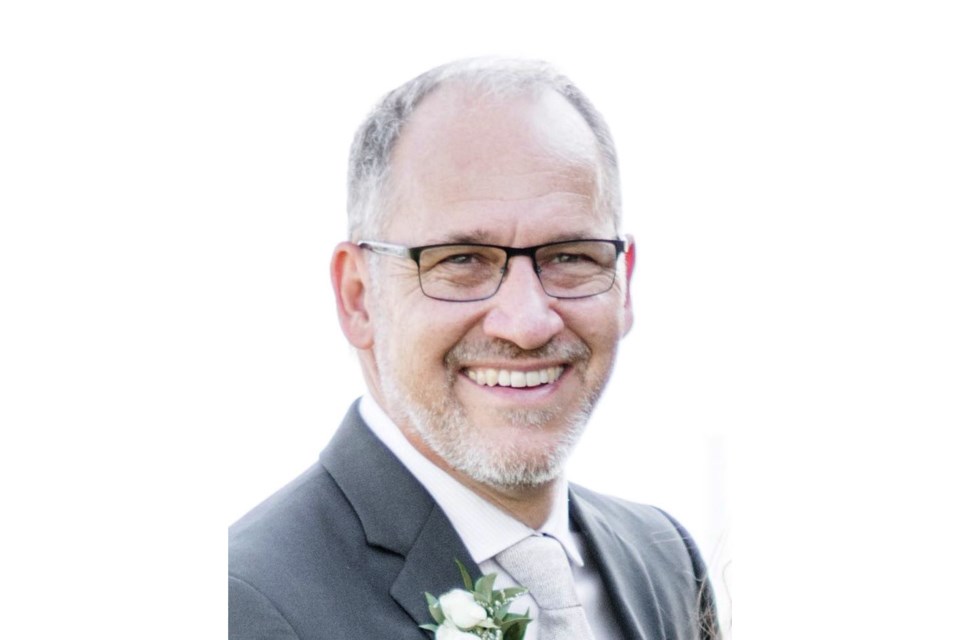CollingwoodToday has worked with a journalism student from Algonquin College to prepare a series of questions and answers with Simcoe-Grey candidates for your information. The topics discussed have a particular focus on the issues impacting youth and young adults in Canada, and in the Simcoe-Grey riding.
This series will include seven different articles with one question per article posted over the next couple of days.
This Q and A has been edited down for length and clarity.
The following are each candidate's answers to the following question: Many of Ontario’s youth are struggling with mental health. Access to proper mental health care is scarce in Collingwood. Many youth have to travel outside of their communities to reach a physician who deals with addiction and substance abuse. What can you do to include better mental health and substance-abuse support in your community?
Richard Sommer, PPC: I'm not knowledgeable about that, but some of those matters are provincial matters, and I'm not saying that as a cop-out.
The way it works is we collect GST/HST from all the provinces and then we redistribute that to the various health entities in the various provinces. We feel that that really hampers the province from addressing these kinds of concerns, it hinders innovation, it hinders efficiency.
So we are more in favour of, let's not be the middle person, let the provinces keep the GST and let them spend it on provincial priorities themselves.
We think that should be in the provincial jurisdiction to give priority. I would say on a personal level, I feel very empathetic and compassionate towards those people who struggle with that and I would be personally very much in favour of doing what we can to make their lives better, and give them better access to services
Lorne Kenney, Liberal: I readily agree youth in Collingwood and elsewhere in Simcoe-Grey are seriously underserviced when it comes to their mental health.
There are serious issues surrounding depression, anxiety and other mood disorders that are often self-medicated with alcohol and drug (opioid, fentanyl and carfentanyl) addictions.
The Liberal platform contains the undertaking to provide significant additional and sorely-needed resources to address mental health, as part of the ongoing negotiations with the provinces. The South Georgian Bay Area needs the kind of representation that will ensure we are able to expand the range of mental health supports, programs and clinics that are professionally staffed.
I am equally mindful that many, perhaps every, troubled young person has a family that may also need support. Accordingly, mental health initiatives need to be carefully coordinated with local schools, other community social services at the front lines of treating mental health issues which are epidemic and, in the case of opioids, at the crisis emergency level.
Terry Dowdall, Conservative: Mental health is a serious problem today which we need to take action on with support and funding.
We need to invest to help address this issue and to work with a variety of agencies and community partners to deliver assistance here in Simcoe-Grey.
Our previous Conservative government created the Mental Health Commission of Canada and provided funding of $240 million along with $5.2 million to support research on treating depression with a focus on suicide prevention. I believe that we need to continue to fund these programs.
Specific to substance abuse here in our riding, we need to work toward building a system of care where everyone who struggles with addiction is offered treatment and a pathway to recovery. Local consultation with partner agencies and those involved in social support, as well as those directly impacted, can help to determine a path forward in a strategic manner.
Ilona Matthews, NDP: We need to increase the number of professionals to match the need in the community.
Mental health treatment would also be included in our head-to-toe Medicare, so that you don't have to pay for it and making sure that we have enough professionals to be able to handle things in this field. So that there's much better access, they don't have to sit around and wait for six months to a year just to go and see someone. That would be making it much more accessible financially and time-wise.
Tony D'Angelo, Veteran's Coalition Party: We have something in our platform where we're going to look after the people of the First Nations. They're the ones who are struggling with addiction greatly, and their resources have been limited completely, so what we're trying to do is to bring funding to the First Nations.
That's the same thing that we need to do in the smaller communities like Alliston, and places where a lot of these services aren't quite available.
Unfortunately, there are too many people falling through the cracks. We have to engage people, find out where they're going wrong, what's happening. Conversation has to come to the forefront. It's become a lot better.
But I think we need to be able to speak freely and openly and not be afraid of judgement. Everybody has an issue. Everybody has something they're dealing with, and we need to be able to help each other deal with these issues.
Sherri Jackson, Green: We intend to make a mental health part of the Health Care Act; currently it’s not included. It's all physical well being as opposed to mental health.
And we think that it's critically important that we assess mental health as a health crisis, as well as the opioid crisis is a health crisis. It's not a drug crisis. We've lost 10,000 people in the last couple of years to opioid overdoses as well as fentanyl poisoning. So we need to make those health issues as opposed to part of the criminal drug problem.


